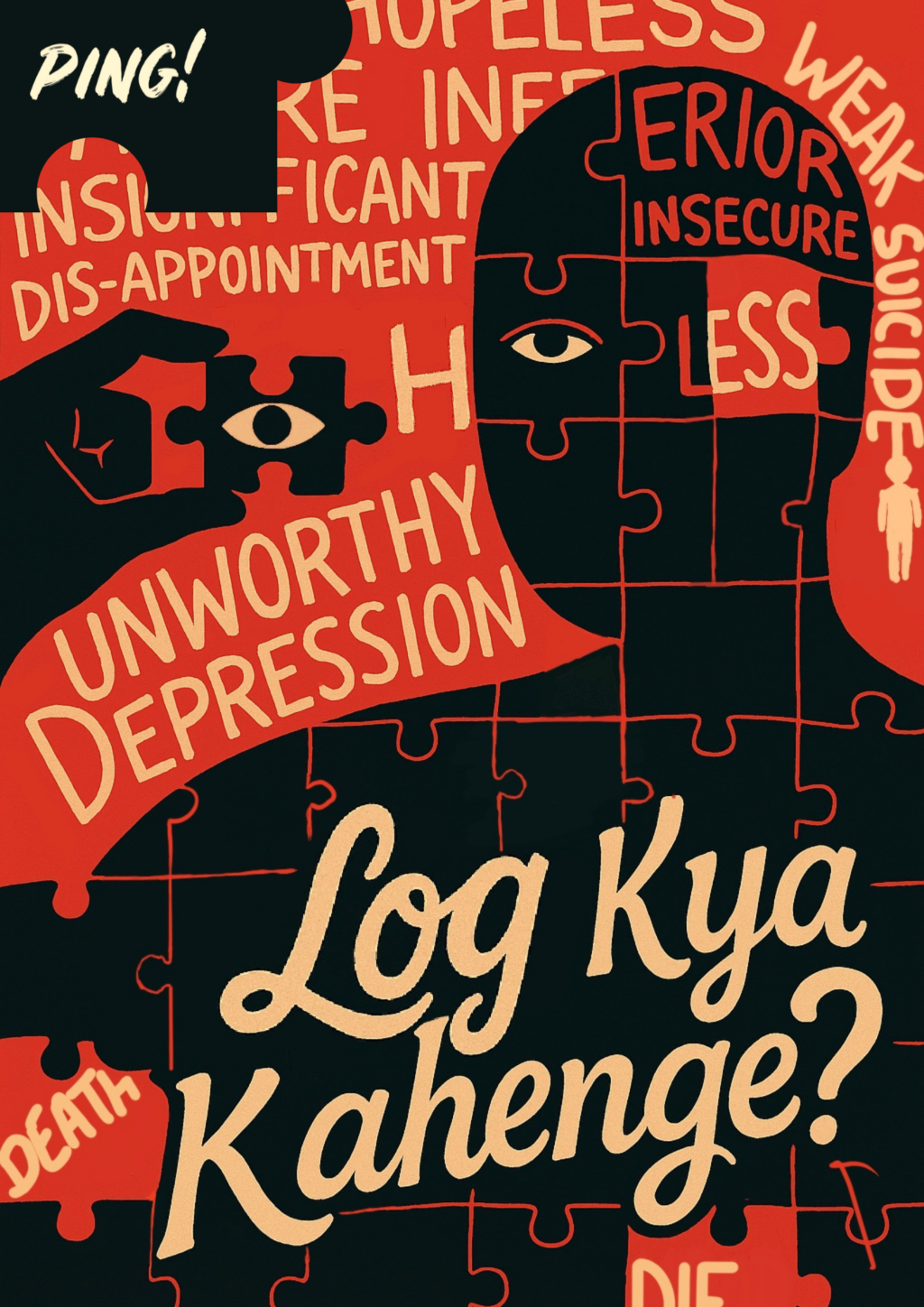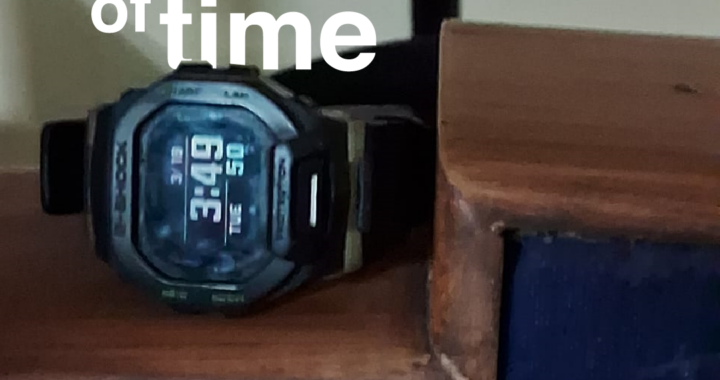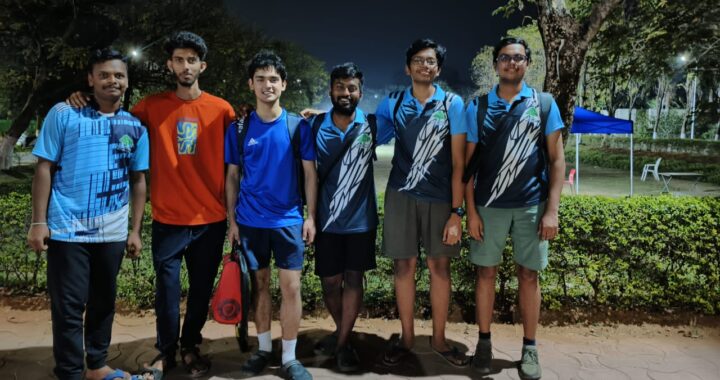Log Kya Kahenge?

Imposter Syndrome (/ɪmˈpɒstər ˈsɪn.drəʊm/) – The persistent inability to believe that one’s success is deserved or has been legitimately achieved as a result of one’s efforts or skills.
Coming to this college was the only decision I made with complete certainty throughout my 17 years growing up. Oh, the research facilities, the beautiful campus, the brightest professors and pupils in India, the placements – I’d heard it all from my brother, another student here. There was one small thing he forgot to mention though, whether by accident or choice, and that was the feeling of dread and regret that often strikes here.
Few things are quite as invasive as the feeling of not being enough or not feeling like you deserve what you have achieved. That feeling is, unfortunately, one that almost every student on campus suffers from at one point or another during their time at college. When you’re constantly surrounded by some of the brightest minds in the country, it’s easy to forget your achievements and capabilities, continually feeling the need to compete with the person next to you, whilst that person is too busy trying to compete with the person next to them, in an infinite good-for-no-one cycle.
This cycle is one that trapped me for the entirety of my first semester. I was always looking to everyone around me, my roommates, my best friends, even to the point I was asking alumni I knew about their first semester grades. But, none of that ended up making me feel even remotely better about myself, and all it did was push me further down the track of a race I was delusionally running by myself. It took me a dozen journal entries and countless sleepless nights to figure out why I was feeling this way, and while some of it may come down to me, I believe the culture our beloved college has cultivated over its 26 years had a part to play in my (along with many others I know) inevitable spiral.
Arey, Tu To REDACTED Hai Na? Teri To Fategi. (You’re X right, it’s so over for you.)
Let’s play a game, one you’re probably familiar with: Fill In The Blank! You probably thought of a word to go in the redacted part anyways, whether you’ve been on the receiving or delivering end of it. Common answers include:
- Arrey, Tu To DASA Hai Na, Teri To Fategi.
- Arrey, Tu To SPEC Hai Na, Teri To Fategi.
- Arrey, Tu To Boards Se Hai Na, Teri To Fategi.
- Arrey, Tu To ECE Hai Na, Teri To Fategi.
- Arrey, Tu To CND Hai Na, Teri To Fategi.
Unfortunately, you don’t get points for being right this time, except maybe sympathy ones if you fit any of the categories listed above. Low-hanging fruit is the easiest to pick, and jokes based on branches and modes of admissions are among the most commonly made on campus. I don’t claim to be a saint myself, but over a period of time, these constant reminders can end up doing more harm than intended or predicted. I come from a background where I was privileged to not have the burden of competitive exams placed on me from a young age, and because of that, I was immediately an outcast amongst my peers, because what’s a better bonding agent than shared trauma? I brushed the jokes off as nothing more than what they were, but when the poor scores started rolling in, I couldn’t help but think that their shallow jabs and snide remarks may be right.
You see, the main problem with Imposter Syndrome lies in its attack on the self. I was afraid to talk to my friends about how I felt because they were the standard I was comparing myself to in the first place, and in an environment where your CG is often more important than even your name, being anything less than perfect just isn’t good enough, or at least that’s how it felt. I didn’t want to be seen as a loser, or an idiot, so the same friends who I’d spend every waking hour with, were the same people I’d lie about my marks to, adding 5 or 10 marks to my score to not seem like a waste of space.
Bhai, Tujhe Kya Hua? Teri To REDACTED Rank Aayi Thi Na?
There’s a post I saw over the winter that stuck with me. A user on r/JEENEETards posted a screenshot of my batch-mate’s (and friend’s) LinkedIn, with the caption “This is a first-year student at IIITH, WTF”.
Everyone comes here as a household hero: someone who worked hard, put the hours in, got a really high rank, and landed at one of India’s best engineering colleges. insert necessary bombay dilli nahi milli joke here. But when you’re a household hero surrounded by 370 other household heroes, it’s tough to shake off that feeling that something is missing when you’re no longer the top scorer in every exam. Add to that the expectations of those at home and the standards you’ve set for yourself, it can feel cataclysmic when you’re unable to reproduce the same results that you could before. In the rat race that is engineering in India, students are often defined by a number more than a personality or their name, and when your number is no longer the highest amongst those around you, it’s easy to believe something’s gone horribly wrong with you.
“Chipkali Ki Pooch” (The Lizard’s Tail) is a term a young author (cough) once masterfully coined. Many people I ended up meeting in my first semester often felt disappointed with their marks and disdain at not being amongst the top 5% of the batch, when that’s all they’d known their whole life. They’d end up reverting to the safety of their previous marks accomplished in their competitive exams. While understandable, this attachment to the past acted as an anchor for them, preventing them from focusing on their life and career here. We must let go of the past to come out as more focused and optimistic students, in the same way, a lizard must shed its tail to escape from prey, only to grow back healthier than ever.
Where do we go from here?
I find humor in the ironic existence of Imposter Syndrome. Feeling like you’re all alone and no one can help you – when 7 out of the 10 people next to you probably feel the same way. There’s solace to be found in the togetherness of loneliness, and more than putting out fires as they come out, I believe it’s time for us to reflect on the education systems and societal expectations that have brought us to the edge of this cliff.
Creating an endless cycle of comparison and self-loathe helps no one, and we must collectively let go of the individualistic me-or-no-one mindset we were raised in and work towards fostering a healthier, cooperative environment for not just those immediately around us, but those to come in the future.
Imposter Syndrome is not a river you have to cross alone, and you are no lesser version of yourself just because you may face doubts or insecurities about your capabilities. It’s completely normal to feel this way, it took me less than a month after I got here to start feeling like an outsider. And it’s incredibly normal for these feelings to take time to start wearing off too. It’s been over a semester, and I still end up doubting myself in moments. Some of my friends took years to accept themselves, and some took just weeks. Learning to find peace and comfort in your own talents and capabilities is a marathon, not a sprint, and you should never put someone on a pedestal based on an external observation you make about them. It’s important to work towards your goals in the way that’s best suited to you, as everyone’s finish line is different. What you end up achieving might be vastly different from those around you, but no less commendable or impressive. The focus of self-improvement must lie in baby steps towards growth, rather than massive leaps over unrealistically short periods of time.
Whatever feats you accomplish, or whichever ones you don’t, remember: the only person you only ever have to beat in a race, is yourself.

 Felicity: The Price of the Party
Felicity: The Price of the Party  The river of time
The river of time  A perspective on sports in IIIT
A perspective on sports in IIIT  We Are So Cooked
We Are So Cooked  A CCC Response to ‘Campus Canine Affairs’
A CCC Response to ‘Campus Canine Affairs’  Campus Canine Affairs
Campus Canine Affairs  What does ‘Ee Sala Cup Namdu’ mean for RCB fans?
What does ‘Ee Sala Cup Namdu’ mean for RCB fans?  Mama, Put My GPTs in the Ground
Mama, Put My GPTs in the Ground  Have you tried turning the mess off and on again?
Have you tried turning the mess off and on again?